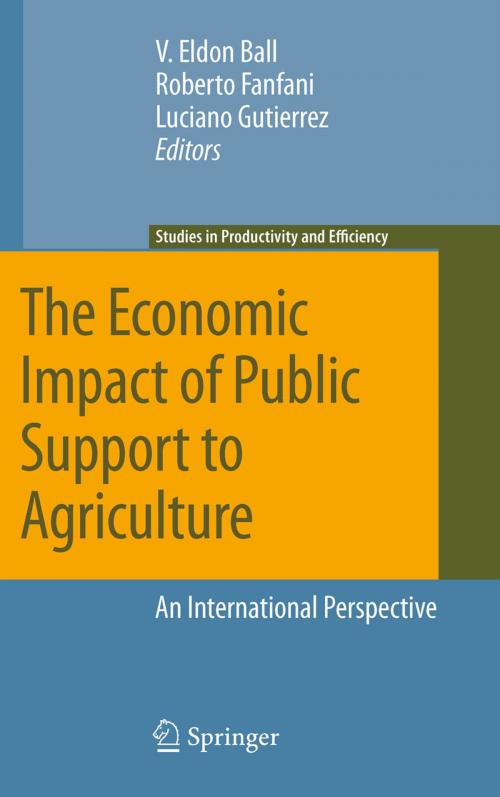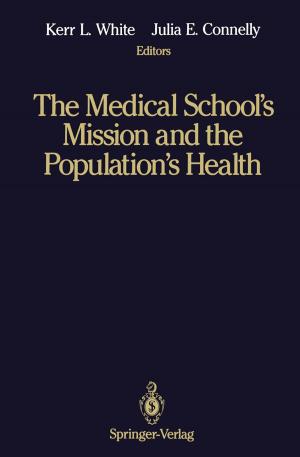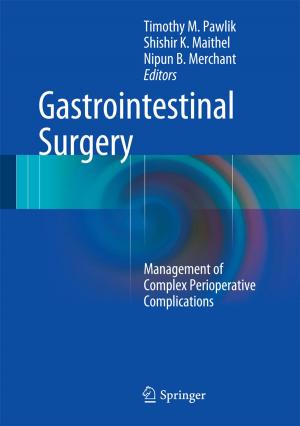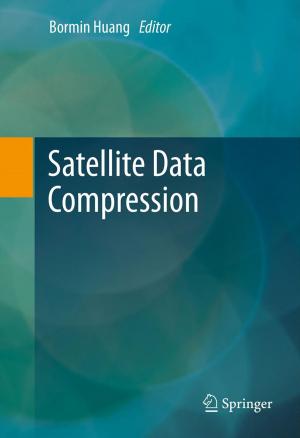The Economic Impact of Public Support to Agriculture
An International Perspective
Nonfiction, Social & Cultural Studies, Political Science, Politics, Economic Policy, Business & Finance, Industries & Professions, Industries, Science & Nature, Technology| Author: | ISBN: | 9781441963857 | |
| Publisher: | Springer New York | Publication: | July 27, 2010 |
| Imprint: | Springer | Language: | English |
| Author: | |
| ISBN: | 9781441963857 |
| Publisher: | Springer New York |
| Publication: | July 27, 2010 |
| Imprint: | Springer |
| Language: | English |
Despite a gradual and sustained decline in the contribution of agriculture to the economies of the member countries of the Organization for Economic Cooperation and Development (OECD), the sector remains socially and politically important. Although agriculture accounts for less than 2% of the gross domestic product of the OECD countries, it occupies over 35% of their total land area. Predominantly rural regions, where agriculture remains particularly important, contain almost one quarter of the population of OECD countries. The past quarter century has witnessed signi?cant changes in agricultural po- cies in OECD countries. Although total support remains high, a shift has taken place from price-linked measures to direct income support, most notably in the European Union. Policies have been adapted to meet pressing social concerns, such as ens- ing food security and improving environmental quality. OECD countries face major economic issues due to the ageing of their populations and the need to adapt to gl- alization and increasing competition from emerging economies. Continued pressure to reform agricultural policies will be exerted by the need to economize on the use of scarce public resources. At the same time, agriculture faces new challenges g- erated by climate change, the “greening” of the economy, increasing scarcity of energy and water, and the demands placed on the food system by an expanding world population.
Despite a gradual and sustained decline in the contribution of agriculture to the economies of the member countries of the Organization for Economic Cooperation and Development (OECD), the sector remains socially and politically important. Although agriculture accounts for less than 2% of the gross domestic product of the OECD countries, it occupies over 35% of their total land area. Predominantly rural regions, where agriculture remains particularly important, contain almost one quarter of the population of OECD countries. The past quarter century has witnessed signi?cant changes in agricultural po- cies in OECD countries. Although total support remains high, a shift has taken place from price-linked measures to direct income support, most notably in the European Union. Policies have been adapted to meet pressing social concerns, such as ens- ing food security and improving environmental quality. OECD countries face major economic issues due to the ageing of their populations and the need to adapt to gl- alization and increasing competition from emerging economies. Continued pressure to reform agricultural policies will be exerted by the need to economize on the use of scarce public resources. At the same time, agriculture faces new challenges g- erated by climate change, the “greening” of the economy, increasing scarcity of energy and water, and the demands placed on the food system by an expanding world population.















